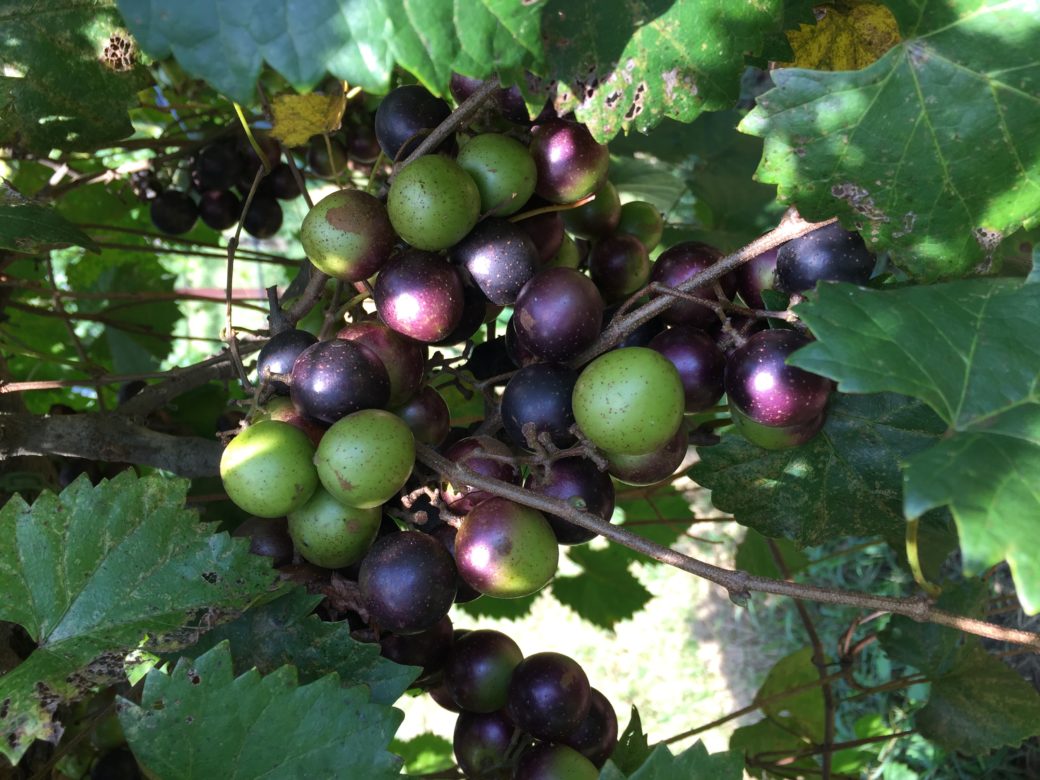Currently, 25 million people in the US are diabetic, with an additional 79 million characterized as prediabetic. Antioxidant-rich foods, such as muscadine grapes, have been reported to improve diabetes outcomes. The objective of this study was to measure the effect of muscadine grape components (skin, pulp, and seeds) on blood glucose in normal weight and overweight individuals (n = 29; 8 male and 21 female; ages 18–28). Anthropometric data was obtained to determine normal (BMI < 25) versus overweight status (BMI > 25). Testing occurred over five days, with a six-day rest period between treatments. Subjects recorded blood glucose after an overnight fast and before consuming samples (standardized at 50 g glucose) at intervals of 15, 30, 45, 60, 90, and 120 minutes after consuming the sample. Glycemic response was computed using the incremental area under the curve calculation. Peak glucose concentrations were significantly higher (p < 0.05) in overweight versus normal weight individuals. Skin, pulp, whole grape, and seed purees lowered glycemic responses by 72%, 66%, 43%, and 5%, respectively. Only the muscadine skin treatment significantly lowered glycemic response at (p < 0.05). Grape skins positively affected glycemic responses in both normal and overweight subjects.
Source:
FASEB Journal
Published Online:1 Apr 2012
